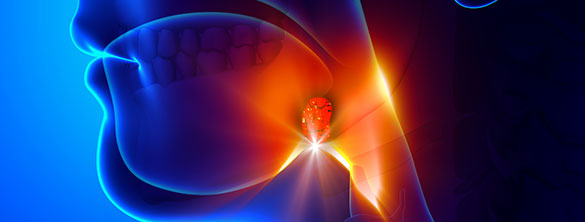
Tonsillitis is a common condition that involves irritation of a pair of oval-shaped tissues called tonsils.
Located in the back of the throat, these tissues can contribute to sore throats, difficulty swallowing, and other uncomfortable symptoms when irritated or inflamed. If you have an especially severe infection, you may be referred to a tonsillitis specialist in Los Angeles.
Why See a Specialist?
Not every instance of inflamed or irritated tonsils requires medical attention. However, you may benefit from an examination by a tonsillitis specialist in Los Angeles if you have a sore throat that’s not going away. You may also be a good candidate for specialized care if you are experiencing any of the following symptoms:
- Painful swallowing
- Speech difficulties due to throat irritation
- Difficulty swallowing well enough to eat or properly digest food
- Extreme tiredness or weakness
In some instance, chronic tonsil infections may contribute to other problems, such as obstructive sleep apnea (OSA) or breathing difficulties. Puss could also collect behind an inflamed tonsil (peritonsillar abscess). It’s also possible for a strep infection to develop.


How Is a Diagnosis Made?
A tonsillitis specialist in Los Angeles usually uses a lighted instrument to view the back of the throat to view the affected area. The lymph nodes are often felt as well to check for swelling. If mononucleosis – which also causes tonsils to become inflamed – is suspected, the spleen may be checked for signs of enlargement.
A positive diagnosis is usually made with a throat swab, which is also done to check for the presence of streptococcal bacteria. If the test is positive, then the infection is bacterial. If it’s negative, then it’s viral. A complete blood cell count (CBC) may also be needed to determine the cause of tonsillitis.
How Is Tonsillitis Treated?
If the source of tonsil irritation is a viral or bacterial infection, treatment often involves recommendations to rest, drink plenty of fluids, and avoid throat irritants. Over-the-counter medications usually help manage discomfort. Bacterial infections are treated with oral antibiotics, which typically need to be taken for about 10 days to make sure the infection clears up.
If tonsil infections keep coming back, a top L.A. specialist may recommend tonsil removal (tonsillectomy). Tonsil removal is normally an outpatient procedure. A tonsillectomy is not the go-to procedure it once was, but it may be the best option under the following circumstances:
- Complications related to enlarged tonsils
- Severe pain and discomfort that’s not going away with other treatment efforts
- Tonsils are bleeding
- Inflamed tonsils are contributing to OSA or other breathing difficulties
- Tonsils are affected by a rare disease
During the procedure, the tonsils are removed with heat, sound waves, or high-energy heat. Most patients do experience some degree of discomfort after tonsils are removed. However, it’s usually manageable with medication and a diet that includes foods that are soft and easy to swallow and/or chew.
Even if a tonsillitis specialist in Los Angeles performed a tonsillectomy, it is possible for tonsil tissue to grow back – although re-growth is usually partial and not complete. If you responded well to antibiotics and didn’t need to have your tonsils removed, you may be advised to be proactive about hand-washing and other steps you can take to prevent spreading germs that may get into your throat.

